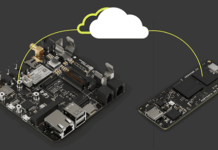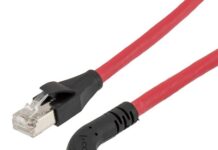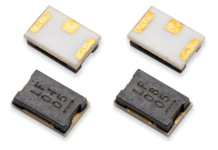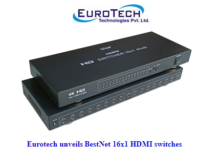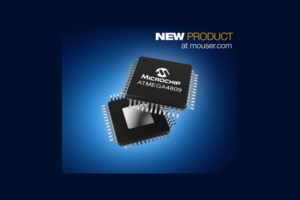
Mouser Electronics, Inc., the authorized global distributor with the newest semiconductors and electronic components, is now stocking the ATmega4809 8-bit microcontroller from Microchip Technology. The ATmega4809 introduces a new series of megaAVR microcontrollers designed to create highly responsive command and control applications. The microcontroller features Core Independent Peripherals (CIPs), which allow it to perform tasks in hardware instead of through software, while an integrated high-speed analog-to-digital converter (ADC) with voltage reference enables faster conversion of analog signals. Because of the advantages offered by the hardware-based CIPs, the ATmega4809 microcontroller was selected to be the on-board microcontroller for the Arduino Uno Wi-Fi Rev 2 board.
The Microchip ATmega4809 8-bit microcontroller, available from Mouser Electronics, is based on a high-performance 8-bit AVR® RISC CPU. The device’s flexible, low-power architecture offers three sleep modes, allowing developers to choose the ideal balance between processing speed and power consumption. The ATmega4809’s CIPs include Configurable Custom Logic (CCL), Cyclic Redundancy Check (CRC), and five 16-bit timers, resulting in decreased frequency of delayed responses and an improved user experience. Robust and responsive, the ATmega4809 microcontroller features an operating range of 1.8 V to 5.5 V and an operating temperature range of minus 40 to 125 degrees Celsius. With the support of factory-calibrated oscillators, the ATmega4809 is able to provide stable performance up to 20 MHz under extreme temperature conditions.
Mouser is also stocking the ATmega4809 Xplained Pro Evaluation Kit. Supported by the Atmel Studio integrated development platform, the evaluation kit provides a demonstration and development platform for the ATmega4809 microcontroller and allows developers to understand how to integrate the microcontroller into a custom design. The ATmega4809 Xplained Pro Evaluation Kit features an on-board embedded debugger to eliminate the need for external programming or debugging tools. The evaluation kit also supports additional peripherals to extend the features of the microcontroller.



